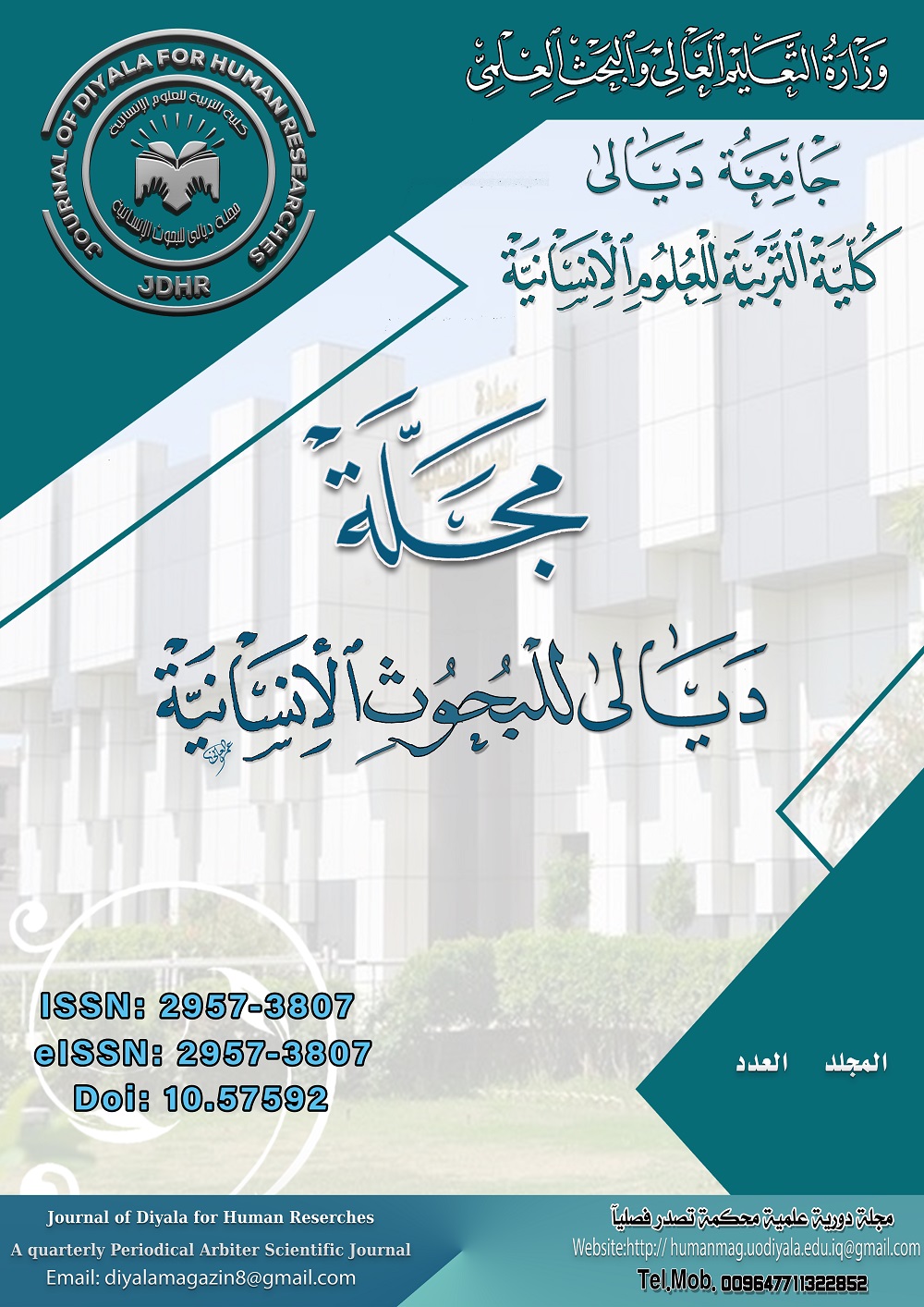التعافي الفكري وعلاقته بالحكمة المقيمة ذاتيا لدى المرشدين التربويين Intellectual Recovery and Its Relationship with Self-Assessed Wisdom Among Educational Counselors
Main Article Content
Abstract
The current study aims to explore intellectual recovery and the significance of statistical differences according to the variable of gender (male-female) among educational counselors. It also aims to examine self-assessed wisdom and the significance of statistical differences according to the variable of gender (male-female) among educational counselors. To achieve the objectives of the study, the researcher developed a scale for intellectual recovery based on Rosco's theory (Rosco, 2009:7). The scale consists of 12 items, and its face validity and reliability were confirmed using the test-retest method, yielding a value of 0.86. Additionally, a scale for self-assessed wisdom was adopted according to Webster's theory (Webster, 2007), consisting of 38 items. The face validity and reliability of this scale were also confirmed using the test-retest method, with a value of 0.88. The scales were reviewed by a panel of experts, and the study sample consisted of 400 participants. The data were analyzed using statistical methods, including the t-test for a single sample, the t-test for two independent samples, Pearson's correlation coefficient, and the statistical package SPSS. The study's findings indicated that there is intellectual recovery among educational counselors, with no statistically significant differences. Additionally, the counselors possess self-assessed wisdom, with statistically significant differences according to the gender variable (male-female) favoring males. Moreover, there was no correlation between the two variables. The study concluded with a number of suggestions and recommendations
Article Details

This work is licensed under a Creative Commons Attribution 4.0 International License.
